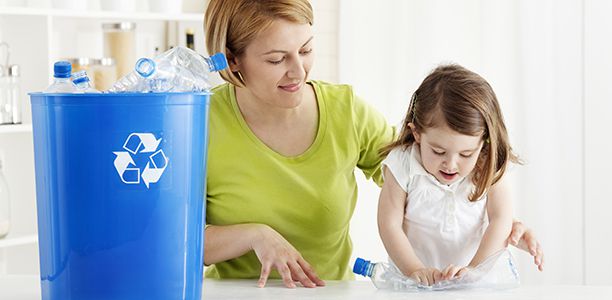You’re never too young to start being an active citizen, according to a QUT early childhood education academic who says educating children about sustainability can influence wider societal change.
Associate Professor Julie Davis, from QUT’s School of Early Childhood, is the editor and chapter author of the second edition of Young Children and the Environment: Early Learning for Sustainability, which tackles one of our biggest contemporary issues – living sustainably.
Designed to promote education for sustainability from birth to eight years, Professor Davis said the book was an essential text for student teachers in early childhood education and a practical resource for primary school teachers and those in childcare, kindergartens and preschools.
She said the second edition broadened the book’s scope beyond environmental sustainability to also emphasise the social aspects of sustainability.
“A core element of this book is the notion of children as active citizens who are capable of creating positive change in their world,” Dr Davis said.
“Critical and creative thinking are key aspects of education for sustainability – this text is about providing opportunities through early education that empower our youngest citizens to make informed decisions and to find solutions to everyday sustainability topics that impact on their lives.
“We don’t wait until our kids to reach 10 or 12 years before we start talking to them about issues like racism and gender equality, just like we don’t wait until they’re 10 to talk to them about why we shouldn’t litter or waste water.
“It is vitally important that we help young children to properly understand matters such as these. This text book is a great resource to help teachers work with young children about better managing our resources and being engaged in ‘making a difference’.”
Packed with case studies, Professor Davis said the book looked at why sustainability issues are important for young people and why early childhood educators should become involved.
When Young Children and the Environment was first published in 2010, Australia had not yet released its National Quality Framework for Early Childhood Education and Care Services, which includes a focus on sustainability.
“This book offers great practical support to early childhood educators, and others, looking for ways to educate for sustainability within the context of these standards,” Professor Davis said.
Popular both in Australia and internationally, the first print run of the text book sold out globally within a year.
The new edition includes a larger international component, with chapters by Korean, Japanese, Swedish and UK experts in early childhood education for sustainability.
“In this edition, there is a chapter about a group of young Korean children who saw a scruffy-looking local park and took charge to fix it up. Not only did they get in and clean it up themselves, but they initiated a community action campaign that convinced the city council to repair broken park fixtures and encouraged the children at the local school to stop leaving their rubbish there,” Professor Davis said.
“Education for sustainability provides a supportive framework around which children can develop their learning in all kinds of areas of the curriculum.
“In the Korean example, the children developed their early literacy skills through writing to the council, and their technology skills to record the state of the park with photographs and emails.
“They even created and shared Quick Response (QR) codes – those two-dimensional block patterns that encode a URL address – to share their project with parents and the wider community.
“It’s amazing what a community of young children can achieve when they realise they can contribute to improving their local environment.
“Early research is starting to show that children’s learning in this space influences parents too – children become change agents for the wider community.”
Professor Davis said Young Children and the Environment was not a book about the perils of climate change or its impacts on children, nor was it a doom-and-gloom book meant to scare children into action.
“This isn’t about showing children pictures of polar bears sitting on shrinking icebergs or children living in poverty – making a child feel depressed or helpless is not good sustainability education,” she said.
“This is about helping children understand the world in which they live, and support them to make changes that are positive and empowering.
“They can’t fix climate change, but they can make a difference in their world by planting trees or encouraging their parents to walk them to school if this is a feasible, and learning resource conservation habits from an early age, such as turning off light switches and taps.
“Many of children’s early thoughts and actions around sustainability also have the potential to become social and environmental habits that can be embedded into their lives outside of kindergarten or preschool and that they can take with them into the future as adults.”
(Source: Queensland University of Technology)










